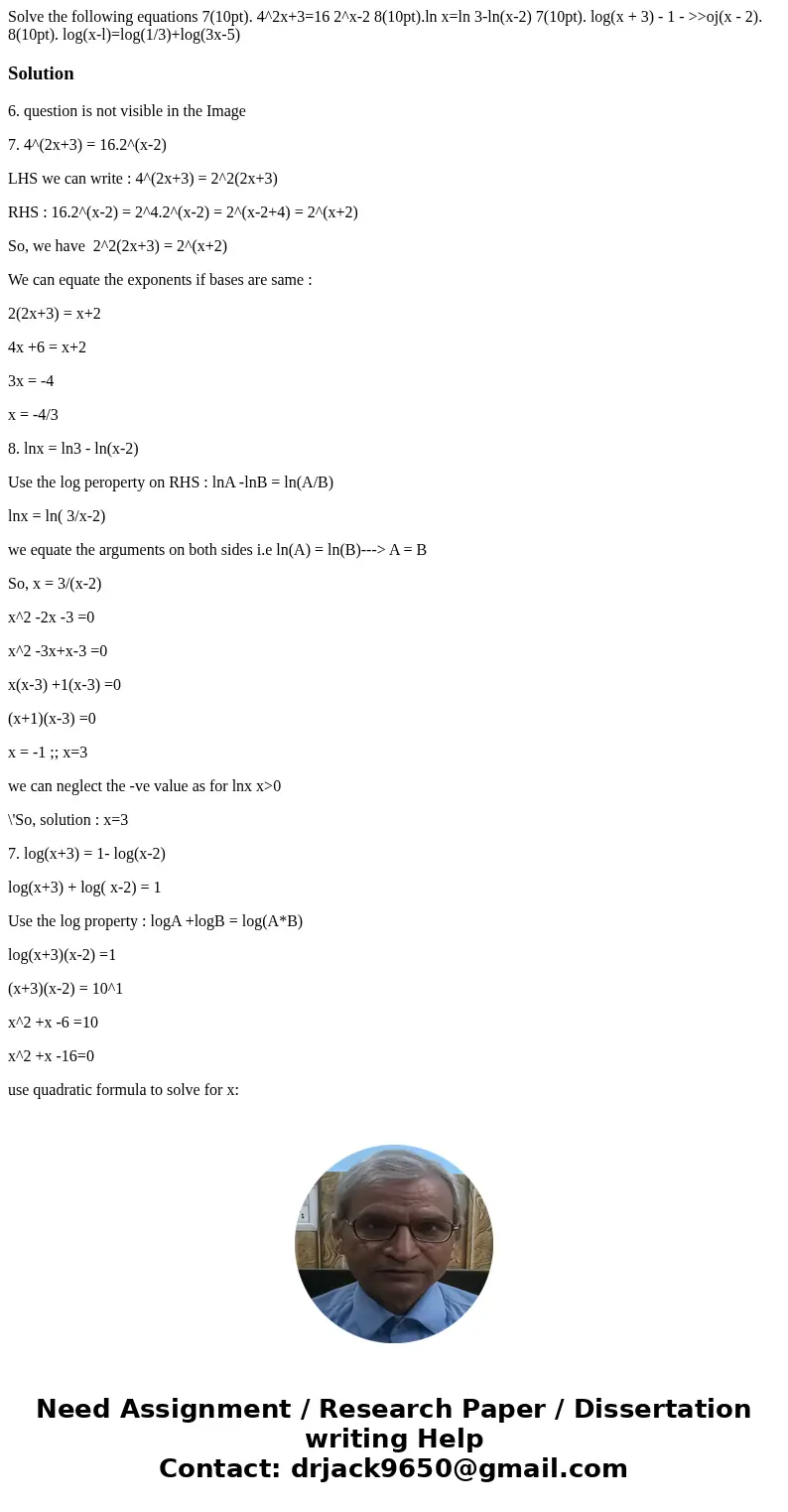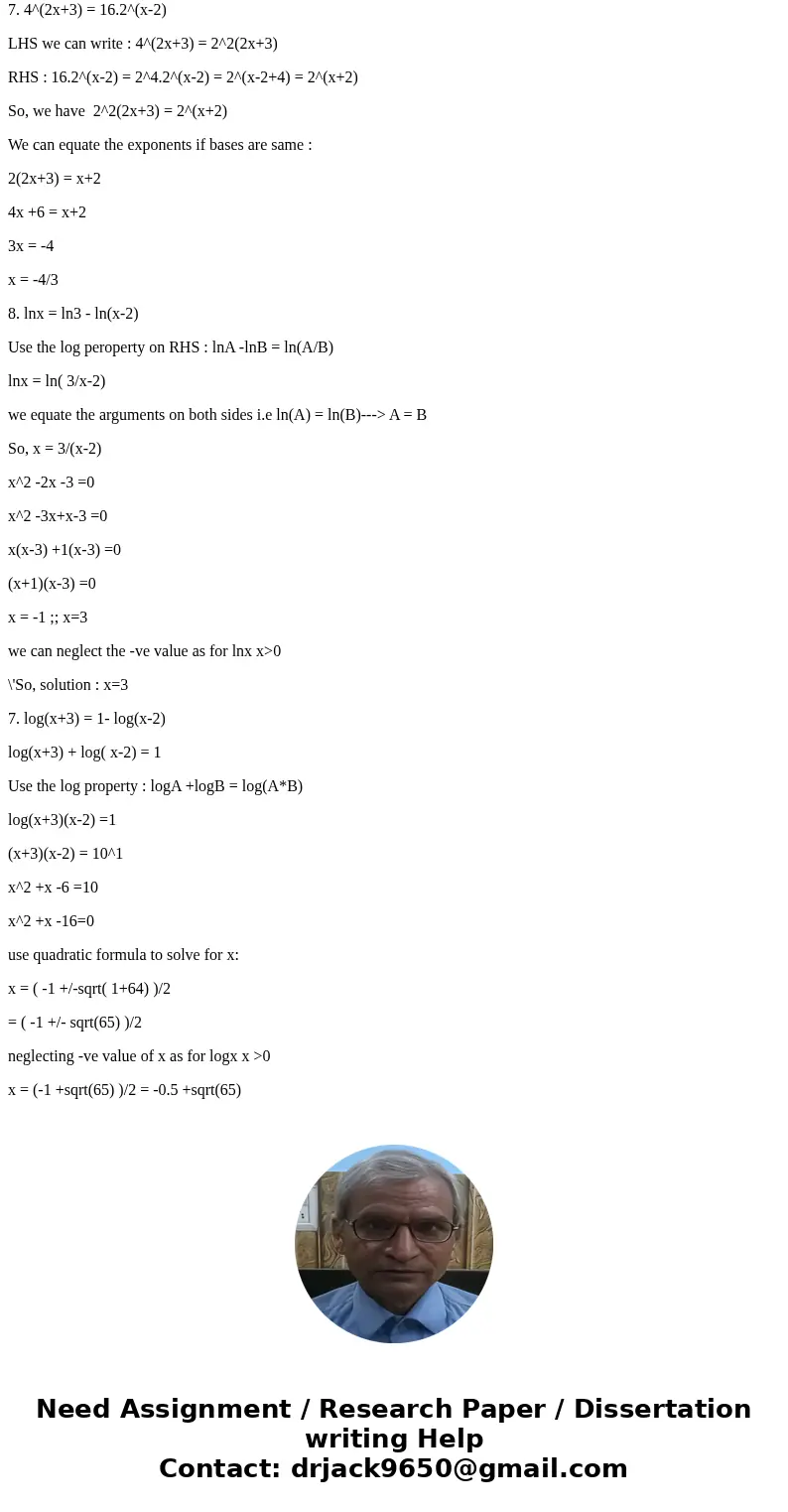Solve the following equations 710pt 42x316 2x2 810ptln xln 3
Solution
6. question is not visible in the Image
7. 4^(2x+3) = 16.2^(x-2)
LHS we can write : 4^(2x+3) = 2^2(2x+3)
RHS : 16.2^(x-2) = 2^4.2^(x-2) = 2^(x-2+4) = 2^(x+2)
So, we have 2^2(2x+3) = 2^(x+2)
We can equate the exponents if bases are same :
2(2x+3) = x+2
4x +6 = x+2
3x = -4
x = -4/3
8. lnx = ln3 - ln(x-2)
Use the log peroperty on RHS : lnA -lnB = ln(A/B)
lnx = ln( 3/x-2)
we equate the arguments on both sides i.e ln(A) = ln(B)---> A = B
So, x = 3/(x-2)
x^2 -2x -3 =0
x^2 -3x+x-3 =0
x(x-3) +1(x-3) =0
(x+1)(x-3) =0
x = -1 ;; x=3
we can neglect the -ve value as for lnx x>0
\'So, solution : x=3
7. log(x+3) = 1- log(x-2)
log(x+3) + log( x-2) = 1
Use the log property : logA +logB = log(A*B)
log(x+3)(x-2) =1
(x+3)(x-2) = 10^1
x^2 +x -6 =10
x^2 +x -16=0
use quadratic formula to solve for x:
x = ( -1 +/-sqrt( 1+64) )/2
= ( -1 +/- sqrt(65) )/2
neglecting -ve value of x as for logx x >0
x = (-1 +sqrt(65) )/2 = -0.5 +sqrt(65)


 Homework Sourse
Homework Sourse